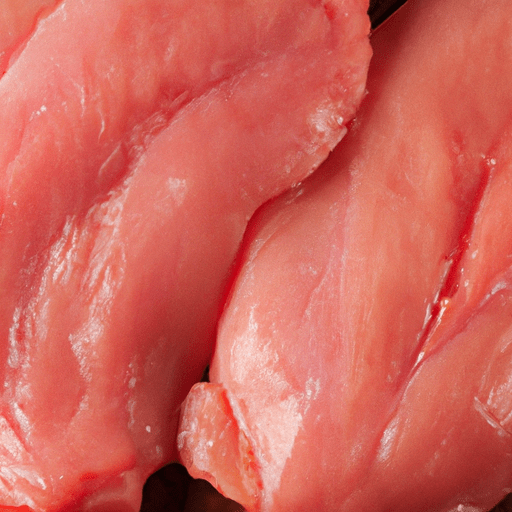Turkey Tenderloins: A Versatile and Delicious Protein Option
Turkey tenderloins are a flavorful and nutritious protein option that offers versatility in the kitchen. These tender cuts of meat are lean, tender, and pack a delicious taste that can be enjoyed in a variety of dishes. Whether you’re looking for a healthy weeknight dinner or a dish to impress your guests, turkey tenderloins are worth considering.
Taste and Texture
Turkey tenderloins offer a mild, slightly sweet flavor that pairs well with a range of seasonings and ingredients. The texture is tender and moist, making it a delight to bite into. The lean meat is succulent and offers a satisfying eating experience, making it a great alternative to other proteins.
Common Uses in Cooking
Turkey tenderloins are incredibly versatile and can be used in a wide array of dishes and cooking methods. Here are a few popular ways to incorporate them into your culinary repertoire:
Grilling and Roasting
Grilling or roasting turkey tenderloins is a fantastic way to enhance their natural flavors. Marinating them in a blend of herbs, spices, and oils before cooking will add depth and complexity to the taste. Serve them alongside grilled vegetables for a well-rounded meal.
Stir-Frying
Turkey tenderloins are a great option for stir-frying since they cook quickly and absorb flavors well. Slice the tenderloins into strips, stir-fry with your favorite vegetables, and finish off with a savory sauce. The result is a delicious and healthy stir-fry that is full of flavor.
Skewers and Kabobs
Thread turkey tenderloins onto skewers with colorful vegetables for a visually appealing and tasty dish. The tender meat cooks quickly on the grill, allowing the flavors to meld together beautifully. This is a great option for casual gatherings or outdoor barbecues.
Salads and Wraps
Slice cooked turkey tenderloins into thin strips and use them as a lean protein source in salads or wraps. The mild taste of the turkey complements a variety of greens, veggies, and dressings, making it a nutritious and satisfying meal option.
Nutritional Value
Turkey tenderloins offer a variety of nutritional benefits that make them an excellent choice for health-conscious individuals:
- Lean Protein: Turkey is a great source of lean protein, making it an excellent option for those looking to maintain muscle mass or support their weight loss goals.
- Low in Fat: Turkey tenderloins are naturally low in fat, particularly saturated fat, which is beneficial for heart health.
- Rich in Vitamins and Minerals: Turkey is a good source of various vitamins and minerals, including vitamin B6, niacin, zinc, and selenium.
- Low in Calories: Compared to other meat options, turkey tenderloins are relatively low in calories, making them a suitable choice for those watching their calorie intake.
Interesting Facts and History
- Turkey is native to North America and was a staple in Native American diets long before European settlers arrived.
- Benjamin Franklin once expressed his support for making the turkey the national bird of the United States.
- The turkey tenderloin is a relatively new cut of meat that has gained popularity in recent years as more people look for lean and healthy protein options.
Turkey tenderloins are a delicious, versatile, and nutritious option that can elevate your meals to new heights. Whether you choose to grill, roast, stir-fry, or use them in salads, their mild flavor and tender texture are sure to please your taste buds. Incorporate turkey tenderloins into your cooking, and you’ll discover a tasty protein source that you’ll come back to time and time again.
Turkey Tenderloins
Origin and Common Uses
- Turkey tenderloins are cuts of meat taken from the breast of the turkey, specifically from the pectoralis minor muscle.
- They are a popular lean protein option and are commonly used in a range of dishes, from roasted turkey tenderloins to stir-fries and sandwiches.
- Turkey tenderloins are versatile and can easily be marinated, grilled, baked, or pan-fried.
Nutritional Benefits
- Turkey tenderloins are a lean source of protein. A 3-ounce (85g) serving of roasted turkey tenderloin contains approximately 26 grams of protein and only about 120 calories.
- They are low in fat, particularly saturated fat, making them a heart-healthy choice.
- Turkey tenderloins also provide essential vitamins and minerals such as vitamin B6, vitamin B12, zinc, and selenium.
Unique Properties
- Turkey tenderloins have a mild flavor and a tender texture, which makes them versatile for pairing with a variety of seasonings and sauces.
- They cook relatively quickly compared to other cuts of turkey or chicken, making them a convenient option for weeknight meals.
- Due to their low fat content, it’s important not to overcook turkey tenderloins to prevent them from becoming dry.
Historical Significance
- Turkey has been consumed for thousands of years and plays a significant cultural role in many countries, particularly during festive occasions like Thanksgiving in the United States and Christmas in various parts of the world.
- Turkey tenderloins, as a specific cut, may not have a distinct historical significance compared to the broader consumption of turkey meat.
Remember, when cooking turkey tenderloins, it is important to follow appropriate food safety guidelines, such as ensuring the internal temperature reaches a safe minimum of 165°F (74°C) to prevent foodborne illness.




Use the share button below if you liked it.
It makes me smile, when I see it.